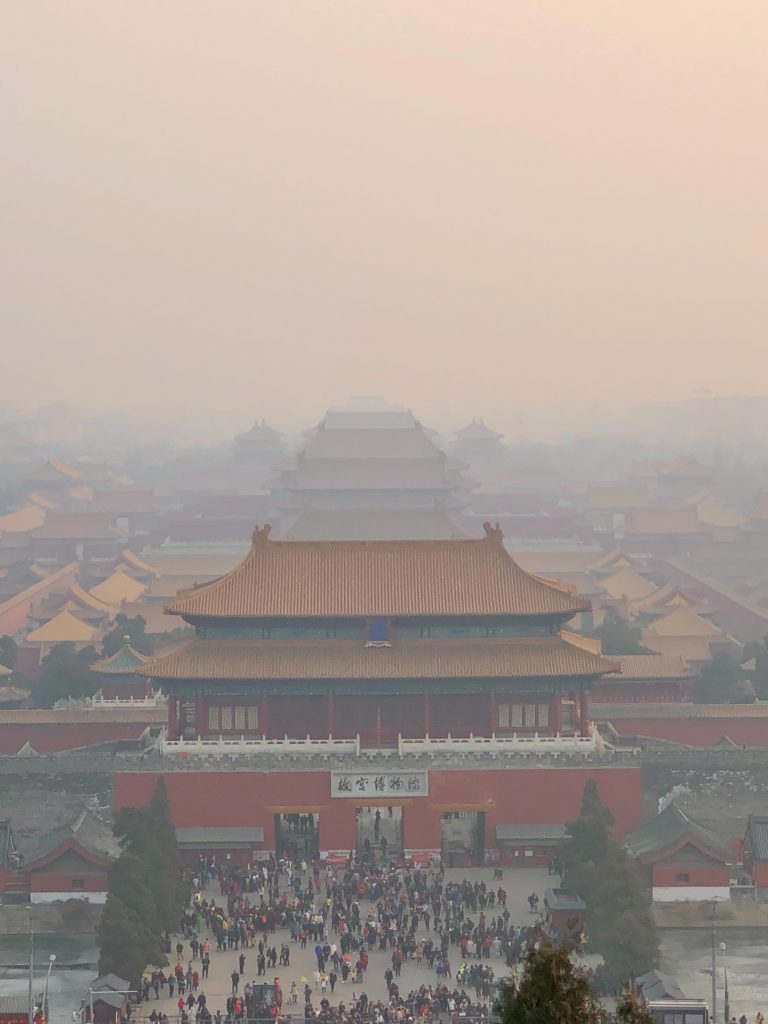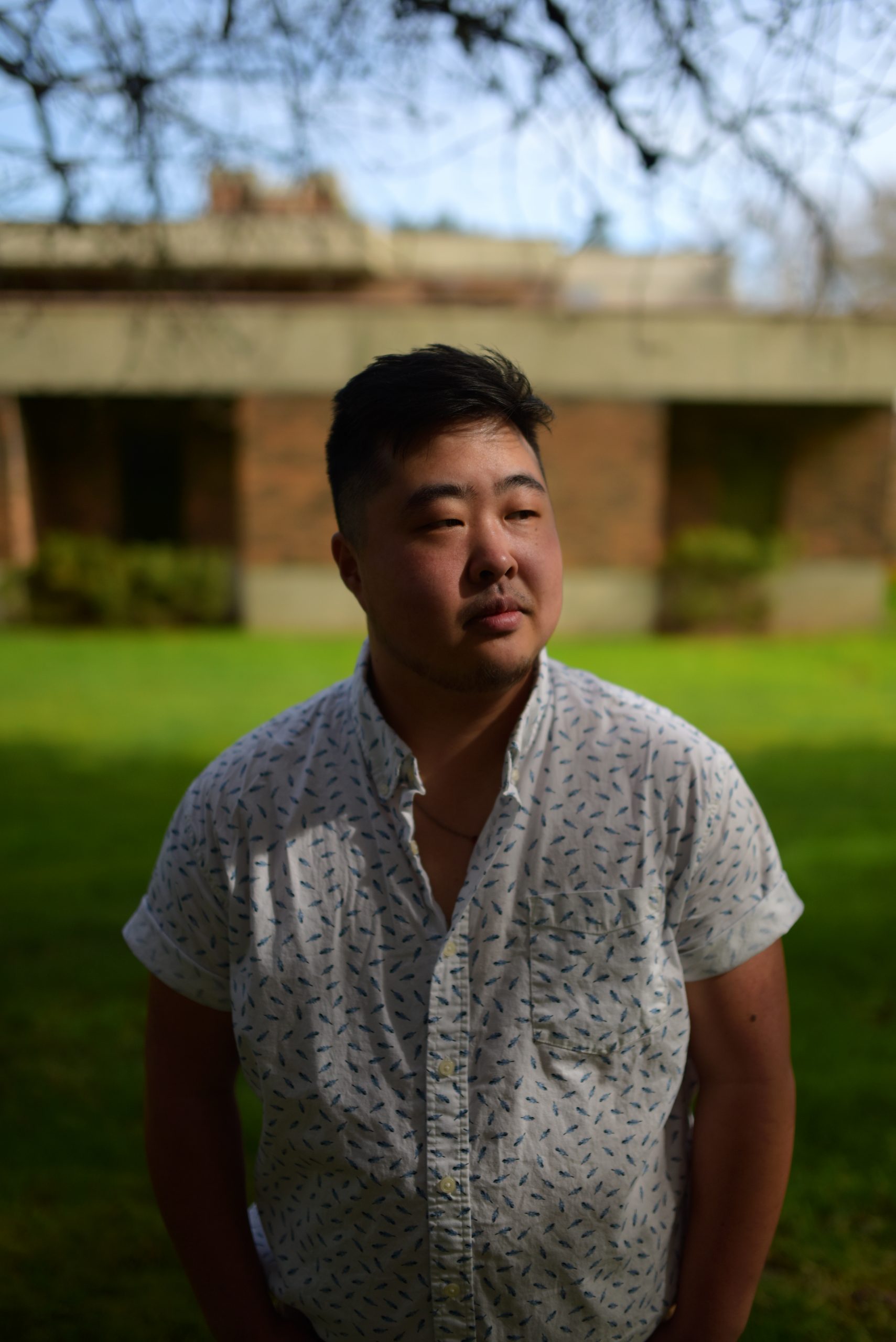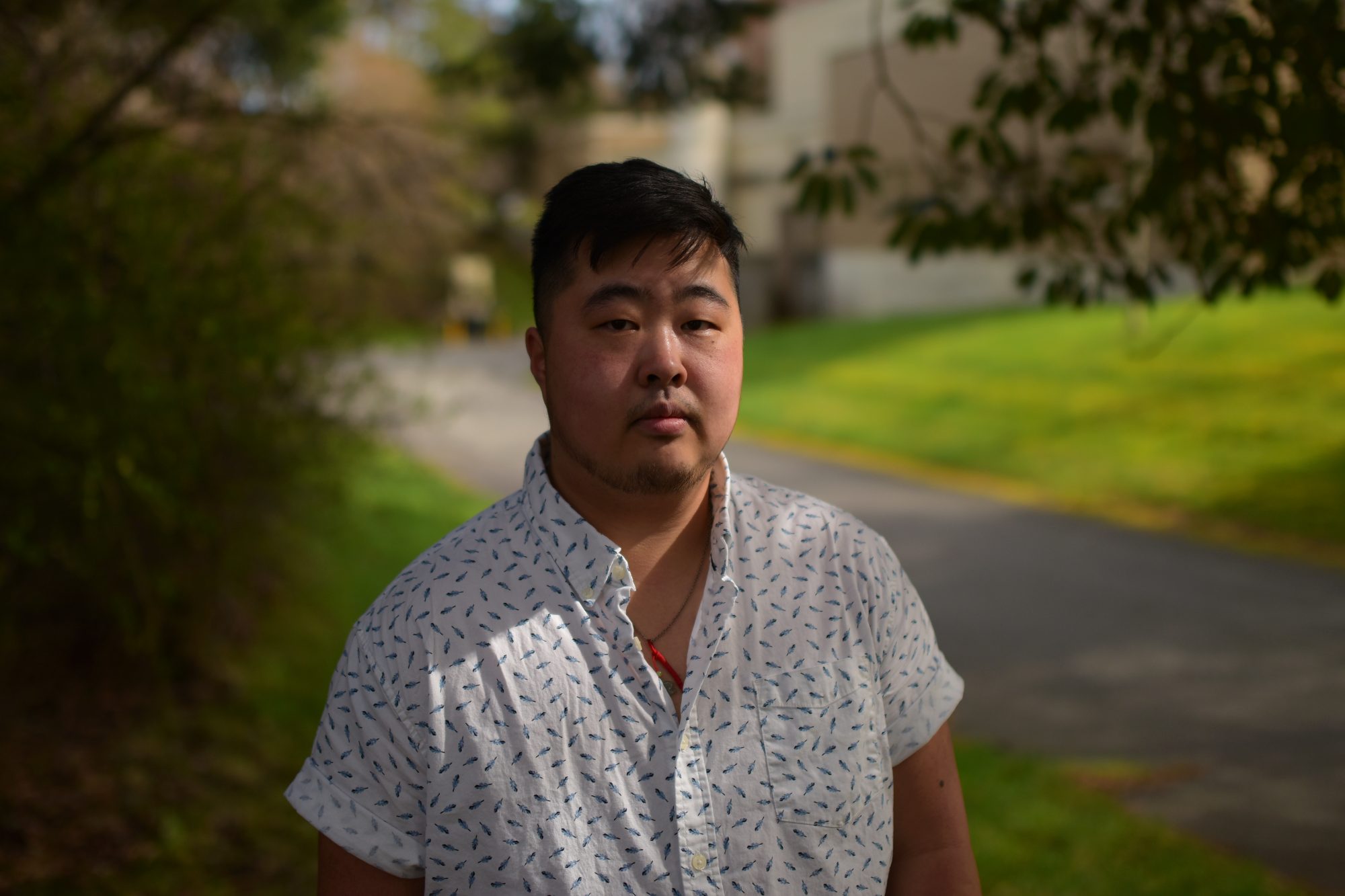Living climate change is a series of personal stories from university students in British Columbia who have lived through climate-related emergencies and disasters.
by LJ Weisberg, as told to Emma Schleindl
Photos by Phil MacLachlan
LJ is a writing student at the University of Victoria. They have been studying there since 2018, and plan to become an elementary school teacher. Working with kids in after school care, they enjoy performance poetry, visual arts using pen and ink, and climbing in their spare time. In 2012, LJ took a trip to China with their parents to see where they were adopted from: Hangzhou, a city of five million people at the southern end of the old Grand Canal waterway, which starts in Beijing. On that trip, LJ was able to learn about and experience their culture. But they also experienced extreme air pollution while staying in Beijing.
I was at the age where I might have been a little too young to properly process all the cultural significance of it, but it was a very eye opening, interesting trip. The total trip from what I remember was two weeks. We travelled from Beijing to Shanghai, then Hangzhou, which is where I was adopted from when I was a kid. Beijing was the first stop on the way. I think we only stayed for five or six days.
It was like a little bed and breakfast. The woman would give us little dumplings. I still remember her name: Angela. She was really nice. It was this cool part of the city that was in the city, but still in a residential area. You could almost step out and feel like you’re in the midst of it all because people were biking down the little alleyway I was staying right off of. You would just see all these people coming and going and a huge bustle and hustle. It was obviously in the heart of the big city, so the air quality was particularly poor there.
When I looked at the sky, it was like when you see the smoke roll over B.C. from wildfires in the summer. You could barely see the sun. It was kind of this red ball in the sky. Apparently, that’s how it was every day. You can’t see blue sky. I just remember this sort of white haze and fog in the air. There’s this smog all the time.
It smells sort of like an earthy scent, but if it had a metallic smell to it. You got this sense of dirt, but not clean dirt. It’s not the kind of smell that you get after a rainstorm, where everything is washed away. This smelled very much like things were dying and things were artificial. It felt like this chemical smell in the air. I remember that smell very clearly.
The heaviness of poor air quality
You wave your hands, you can almost feel the dust particles settling. I had this feeling of everything’s dirty, everything’s gross. It’s like if you go to your grandma’s house, and run your finger across the desk. Everything is so dusty. I remember there being this layer of dirt on my body when I would take a shower that I would have to scrub off with a washcloth.
When I got back, I started noticing I was having shortness of breath and my stamina was shorter. I never displayed symptoms of that before. I did taekwondo from the age of nine until the age of about sixteen. I was training quite frequently, up to three or four times a week, and I would go to tournaments. I was having difficulty doing taekwondo in a way that I was able to before. Within six months I had an asthma diagnosis, inhalers, and all that.

Credit: V2images/ IStock
The way I remember it being described was it might have been a dormant thing, and then it became activated by the pollution in China. If this is all going into my lungs, it’s no wonder that this is something that ended up giving me a chronic illness. This is mostly speculation, because I don’t think there is necessarily a way of knowing exactly whether the asthma I developed was triggered by the experience that I had in China. But I wonder, because there is a correlation and causation between the two things.
“I remember there being this layer of dirt on my body when I would take a shower.”
— LJ Weisberg
Recently, as of a couple years ago, they gave me a steroid inhaler, which is for everyday use. Maybe I’ll need it less in the future since my stamina is beginning to improve. But the pollution here is getting worse, so that’s a hope not a guarantee.
It felt very unfair in a certain way. Before when I would do a physical exercise, I wouldn’t think twice about my ability to breathe. Now, it feels like you take half a breath in, but that’s your full breath. You hit a barrier where you can’t breathe any deeper. Until you take your inhaler, then you feel like your lungs open up.
The experience of going from not having that sort of chronic disability, to then suddenly having that is annoying. It had a big impact on my life in that way, because I had to wrap my head around the concept of now having this. I had this initial reaction of “Why me?” And of course, it’s an irrational one, because the world is an indifferent place. You can’t be like, “I can’t believe the world punished me for going out and learning about my culture and I developed asthma because of that,” because that’s obviously not what happened. But having this sense of a victim complex almost, because of how I developed asthma from going to see a place that I always wanted to see.
“Why me?”

“I suddenly understood… the impact that we are having directly on places… we deem as less important.”
I can’t speak to this because I don’t feel like I know enough about it necessarily, but if the Chinese government cared about its people — that’s very political of me — it would do something about this air pollution. Ultimately, the country is stepping over its people trying to make more money, make more things, make more products that will be shipped to Canada and the U.S. and other countries that are, quote, unquote, developed. I suddenly understood one day when I was 13, the impact that we are having directly on places in the world that we deem as less important. You need to have this sort of cognizance that others around you are affected equally as you are, and perhaps sometimes more so by the power structures in place that lead to this air pollution.
Since I’m going into the profession of teaching, and I work with kids right now, I try to hold out hope that the world is progressing in general. With kids it’s a lot of optimism, and that’s really promising. Whether they remain that way or not, if someone could be born into this world with such vigour and hope and energy, maybe we can take this forward with us, if we maintain this little part of us that is a child. Theoretically maybe we can keep moving forward in a way that’s positive.
This testimony was co-created by members of the Climate Disaster Project at the University of Victoria. The project is an international teaching newsroom that works with disaster-affected communities to document and investigate their stories. For more information, please visit www.climatedisasterproject.com.
